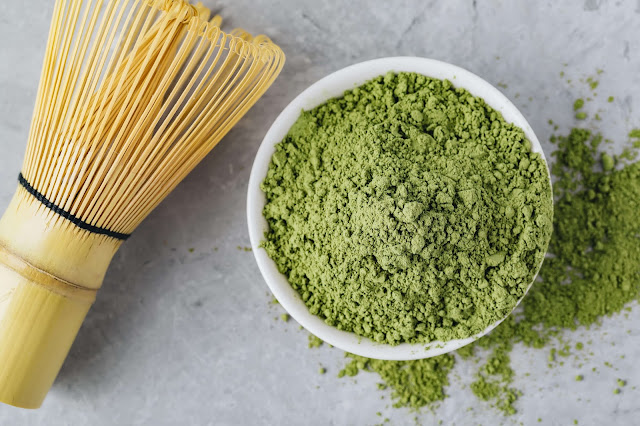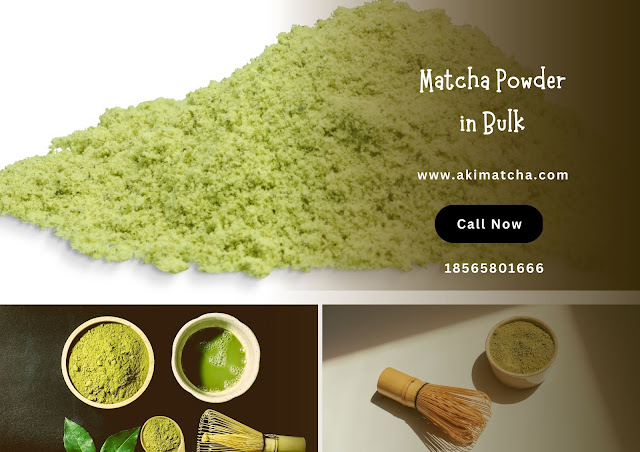Is Matcha A Functional Food?
Functional foods have gained popularity in recent years as people become more conscious of their health and seek out options that offer additional benefits beyond basic nutrition. While the term "functional foods" is not officially defined by the FDA, it generally refers to foods and beverages that can positively impact health due to their specific nutrients or bioactive compounds.
Examples of functional foods include leafy greens rich in folate, which can help reduce the risk of birth defects, or whole grains that lower cholesterol levels and improve heart health.
IS MATCHA A FUNCTIONAL FOOD?
Matcha green tea has garnered a reputation as a nutritional powerhouse, and for many people outside of Japan, their introduction to matcha probably involved hearing about its potent antioxidant compounds and potential health benefits. While standard green tea steeped in hot water is known for its health benefits, matcha takes it a step further by allowing you to consume the entire tea leaf, providing up to 10 times the nutritional value. Nutraceutical matcha has become highly sought-after in various food, beverage, and supplement products due to its unique nutritional profile and pleasant taste. Therefore, it can be said that matcha is indeed a functional food that offers additional health benefits to consumers.
NUTRACEUTICAL MATCHA'S HEALTH BENEFITS
According to New Hope, the market for functional foods and beverages experienced a 2% growth, reaching $5.8 billion in 2019. Coffee and tea are key players in the functional ingredients trend, with ready-to-drink (RTD) beverages leading the way as innovative products. The top health concerns for consumers currently include sleep, stress, and inflammation, and L-theanine, an amino acid found in tea, has emerged as a top ingredient in terms of growth. Given tea and L-theanine's prominence, let's delve into how matcha's unique nutrients align with the growing demand for functional food options:
L-THEANINE: Matcha contains the amino acid L-theanine, which can help reduce the "jitters" often associated with caffeine consumption. L-theanine has been linked to improved cognition, relaxation, and stress reduction. In matcha, these benefits manifest as an increase in dopamine, a decrease in stress levels, and improved alertness and cognition due to the combination of caffeine and L-theanine.
CATECHINS: Green tea leaves contain powerful antioxidant compounds called catechins, which help prevent cell damage. Matcha is particularly known for its high concentration of epigallocatechin gallate (EGCG), one of the most potent catechins found in food. Catechins found in matcha may contribute to preventing cell damage, boosting immunity, and potentially promoting weight loss by boosting metabolism.
CHLOROPHYLL: The shading process used in matcha production before tea leaf harvest results in a high concentration of chlorophyll. Chlorophyll is lauded for its natural detoxifying properties, as it helps remove heavy metals and toxins from the body. This detoxification process can lead to cleaner, healthier skin, and potentially result in a reduction in wrinkles and acne.
VITAMINS A, C, E: Matcha contains a range of vitamins, including vitamins A, C, and E, which all possess antioxidant properties. These vitamins help combat free radicals that cause cell damage. The potential health benefits of these vitamins include boosting the immune system, improving heart, blood, eye, brain, reproductive, and skin health, as well as reducing wrinkles.
In addition to these key nutrients, matcha also contains potassium, magnesium, iron, calcium, and numerous other beneficial compounds that contribute to its potential health benefits.
If you're interested in developing a line of functional food products, consider incorporating matcha into your offerings. Matcha sourced from organic farms in Japan, such as Matcha Jade Leaf, is highly regarded for its quality and purity. Whether you're looking for matcha for personal use or as a wholesale option for your business, exploring the world of nutraceutical matcha can open up exciting possibilities for functional food innovation. Reach out to us with the details of your project, and we'll assist you in finding the perfect nutraceutical matcha that best meets your needs.
Conclusion
In conclusion, matcha can be classified as a functional food due to its unique blend of nutrients and potential health benefits. Its rich concentration of L-theanine, catechins, chlorophyll, vitamins A, C, and E, among other beneficial compounds, make it an excellent choice for those seeking functional foods that offer more than just basic nutrition. Incorporating matcha into your diet or product line can contribute to overall health and well-being while adding a touch of culinary delight.



Comments
Post a Comment